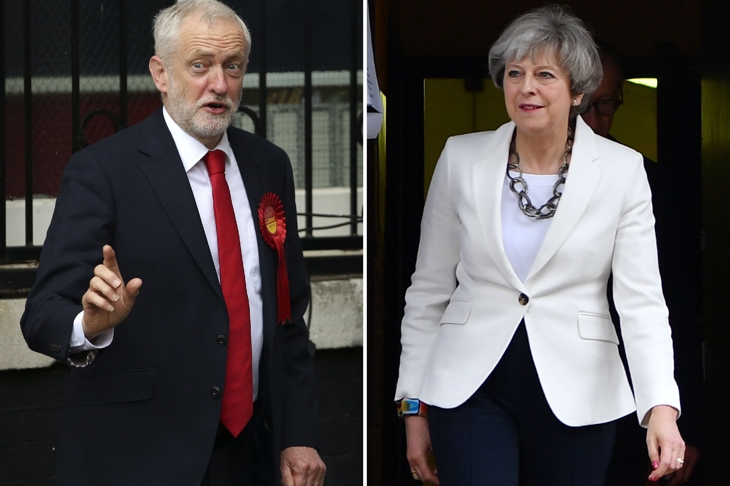Theresa May goes into the weekend safe in the knowledge that she has managed to reach an agreement with her divided ministers on the type of relationship Britain will seek with the EU after Brexit. But given that this unity is over a position of their own creation that Brussels may well say no to (and it’s not clear how the Irish border fits into it all), it’s safe to say that the Prime Minister’s troubles are far from over. With the government thought to be seeking a loose relationship that allows the UK to diverge from EU standard, Donald Tusk has been quick to criticise the reported position as ‘pure illusion’.
Coming up the track, however, is a problem that could see May’s approach over before it even has a chance to succeed. While the Prime Minister will give a speech late next week on her Brexit strategy, Jeremy Corbyn is to give his own come Monday. Speculation is rife that the Labour leader will take the opportunity to flesh out his party’s Brexit position – and commit to staying in a customs union. In what is being briefed out as Labour’s ‘evolving’ Brexit position, Corbyn is expected to say that staying in ‘a’ customs union would have considerable benefits with regards to both the Irish border problem and achieving a ‘jobs first’ Brexit. In this vein, Keir Starmer – the shadow Brexit secretary – has been talking up the benefits of ‘a’ customs union on Marr.
The Conservatives have explicitly ruled out ‘a’ customs union as it would mean the UK would be unable to strike its own free trade deals, or at least competitive ones. The problem for the Tories is that Anna Soubry – the Remain backing Tory MP – has tabled an amendment to the government’s Trade Bill which would force the UK into ‘a’ customs union with the EU after Brexit. Were Labour to make it their official position to back ‘a’ customs union then it’s very possible to envisage a government defeat that would severely limit May’s negotiating position. Were the amendment to succeed, the term ‘customs union’ is so specific (meaning a common external tariff) that it would be near impossible to fudge it.
The current Conservative master plan to solve this problem is to delay the vote. The hope is that in a couple of months time enough progress will have been made to unify the party around the government’s position. Given that the Remain side think their rebel number goes well beyond Anna Soubry and Ken Clarke, this is optimistic. If Labour back a customs union, it could be difficult to achieve the type of Brexit the government has in mind. If the mood of Parliament does not change in the time before the vote, ministers are considering turning it into a ‘confidence’ vote – warning those MPs who would vote against her that they risk bringing the government down.
Perhaps the better hope for the Tories is that Labour continue to fudge their position. As James Kirkup writes on Coffee House, it’s no sure thing that Corbyn will stop being ambiguous on Brexit and clearly commit to a customs union. Corbyn and John McDonnell are former Brexiteers (some would argue ‘current’ ones) and his director of communications Seumas Milne is deeply suspicious of the EU. But there’s also another factor at play here. Last month Len McCluskey – Unite chief and key Corbyn ally – suggested that Labour must vote down the final Brexit deal – no matter what it is:
‘My personal hope and belief is that in late Autumn of this year the [Brexit] deal that comes back to parliament will be rejected, Theresa May will resign, and it will lead to an early general election in 2019.’
This is because were May to lose a vote on the final Brexit deal the government would most likely fall – paving the way for a Corbyn government. As I reported last year, the theory goes that no Opposition could resist a chance to oust the government so they would find a reason to reject the deal as with the Maastricht Treaty where Labour voted against it on the grounds that Britain was opting out to the social chapter even though they agreed with the treaty in principle.
The problem is that if the final deal is a soft form of Brexit engineered by Labour support, it makes it a lot harder to justify to the public voting it down. Given that the alternative to the final deal is currently WTO terms, Corbyn’s side would need to come up with a pretty good reason to risk a cliff edge Brexit and that’s a lot harder if it’s a soft Brexit many of their members would back. That thought in itself may be enough to convince Corbyn not to go all in on Monday.







Comments